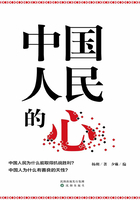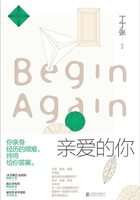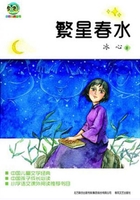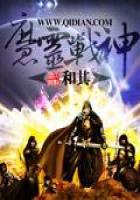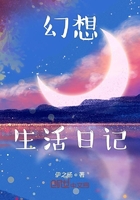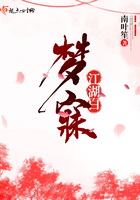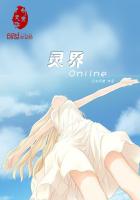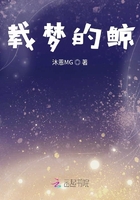INTRODUCTION TO RIVERSIDE EDITION
In coming before the public with a newly made edition of my writings, what can I say to my reader at this stage of our acquaintance that will lead to a better understanding between us? Probably nothing. We understand each other very well already. I have offered myself as his guide to certain matters out of doors, and to a few matters indoor, and he has accepted me upon my own terms, and has, on the whole been better pleased with me than I had any reason to expect. For this I am duly grateful; why say more? Yet now that I am upon my feet, so as to speak, and palaver is the order, I will keep on a few minutes longer.
It is now nearly a quarter of a century since my first book, "Wake-Robin," was published. I have lived nearly as many years in the world as I had lived when I wrote its principal chapters. Other volumes have followed, and still others. When asked how many there are, I often have to stop and count them up. I suppose the mother of a large family does not have to count up her children to say how many there are. She sees their faces all before her. It is said of certain savage tribes who cannot count above five, and yet who own flocks and herds, that every native knows when he has got all his own cattle, not by counting, but by remembering each one individually.
The savage is with his herds daily; the mother has the love of her children constantly in her heart; but when one's book goes forth from him, in a sense it never returns. It is like the fruit detached from the bough. And yet to sit down and talk of one's books as a father might talk of his sons, who had left his roof and gone forth to make their own way in the world, is not an easy matter. The author's relation to his book is a little more direct and personal, after all, more a matter of will and choice, than a father's relation to his child. The book does not change, and, whatever it fortunes, it remains to the end what its author made it. The son is an evolution out of a long line of ancestry, and one's responsibility of this or that trait is often very slight; but the book is an actual transcript of his mind, and is wise or foolish according as he made it so. Hence I trust my reader will pardon me if I shrink from any discussion of the merits or demerits of these intellectual children of mine, or indulge in any very confidential remarks with regard to them.
I cannot bring myself to think of my books as "works," because so little "work" has gone to the making of them. It has all been play. I have gone a-fishing, or camping, or canoeing, and new literary material has been the result. My corn has grown while I loitered or slept. The writing of the book was only a second and finer enjoyment of my holiday in the fields or woods. Not till the writing did it really seem to strike in and become part of me.
A friend of mine, now an old man, who spent his youth in the woods of northern Ohio, and who has written many books, says, "I never thought of writing a book, till my self-exile, and then only to reproduce my old-time life to myself." The writing probably cured or alleviated a sort of homesickness. Such is a great measure has been my own case. My first book, "Wake-Robin," was written while I was a government clerk in Washington. It enabled me to live over again the days I had passed with the birds and in the scenes of my youth. I wrote the book sitting at a desk in front of an iron wall. I was the keeper of a vault in which many millions of bank-notes were stored. During my long periods of leisure I took refuge in my pen. How my mind reacted from the iron wall in front of me, and sought solace in memories of the birds and of summer fields and woods! Most of the chapters of "Winter Sunshine" were written at the same desk. The sunshine there referred to is of a richer quality than is found in New York or New England.
Since I left Washington in 1873, instead of an iron wall in front of my desk, I have had a large window that overlooks the Hudson and the wooded heights beyond, and I have exchanged the vault for a vineyard. Probably my mind reacted more vigorously from the former than it does from the latter. The vineyard winds its tendrils around me and detains me, and its loaded trellises are more pleasing to me than the closets of greenbacks.
The only time there is a suggestion of an iron wall in front of me is in winter, when ice and snow have blotted out the landscape, and I find that it is in this season that my mind dwells most fondly upon my favorite themes. Winter drives a man back upon himself, and tests his powers of self-entertainment.
Do such books as mine give a wrong impression of Nature, and lead readers to expect more from a walk or a camp in the woods than they usually get? I have a few times had occasion to think so. I am not always aware myself how much pleasure I have had in a walk till I try to share it with my reader. The heat of composition brings out the color and the flavor. We must not forget the illusions of all art. If my reader thinks he does not get from Nature what I get from her, let me remind him that he can hardly know what he has got till he defines it to himself as I do, and throws about it the witchery of words. Literature does not grow wild in the woods. Every artist does something more than copy Nature; more comes out in his account than goes into the original experience.
Most persons think the bee gets honey from the flowers, but she does not: honey is a product of the bee; it is the nectar of the flowers with the bee added. What the bee gets from the flower is sweet water: this she puts through a process of her own and imparts to it her own quality; she reduces the water and adds to it a minute drop of formic acid. It is this drop of herself that gives the delicious sting to her sweet. The bee is therefore the type of the true poet, the true artist. Her product always reflects her environment, and it reflects something her environment knows not of. We taste the clover, the thyme, the linden, the sumac, and we also taste something that has its source in none of these flowers.
The literary naturalist does not take liberties with facts; facts are the flora upon which he lives. The more and the fresher the facts the better. I can do nothing without them, but I must give them my own flavor. I must impart to them a quality which heightens and intensifies them.
To interpret Nature is not to improve upon her: it is to draw her out; it is to have an emotional intercourse with her, absorb her, and reproduce her tinged with the colors of the spirit.
If I name every bird I see in my walk, describe its color and ways, etc., give a lot of facts or details about the bird, it is doubtful if my reader is interested. But if I relate the bird in some way to human life, to my own life,—show what it is to me and what it is in the landscape and the season,—then do I give my reader a live bird and not a labeled specimen.
J. B. 1895.

